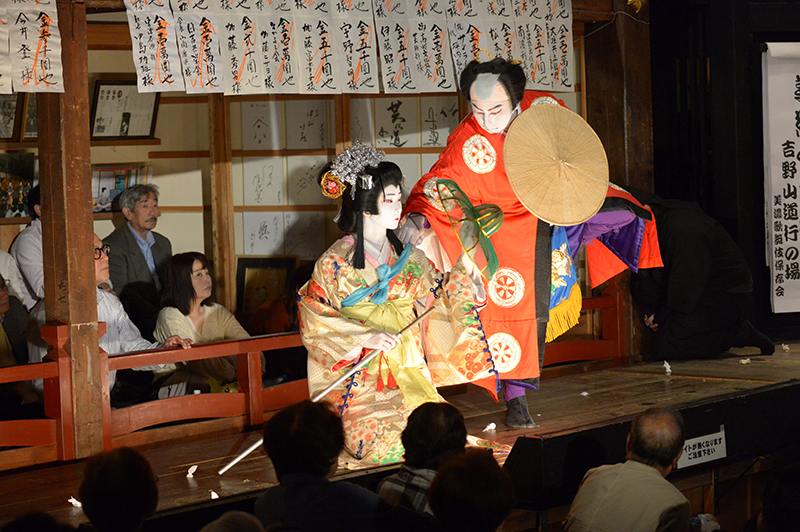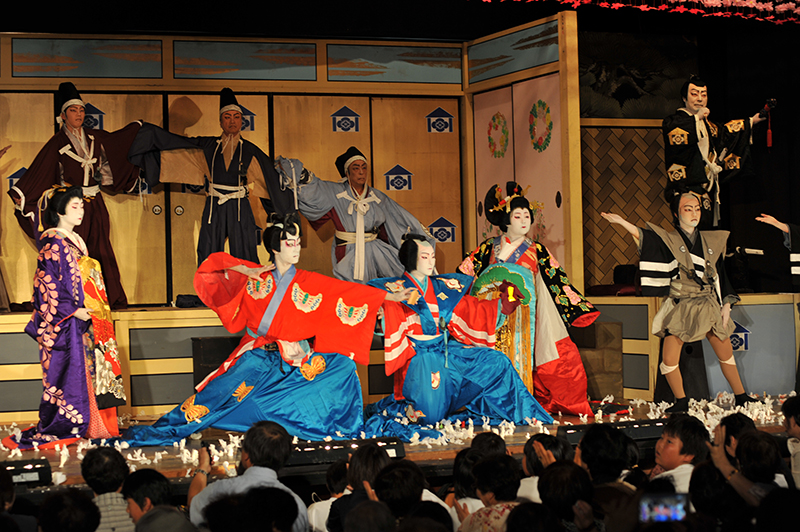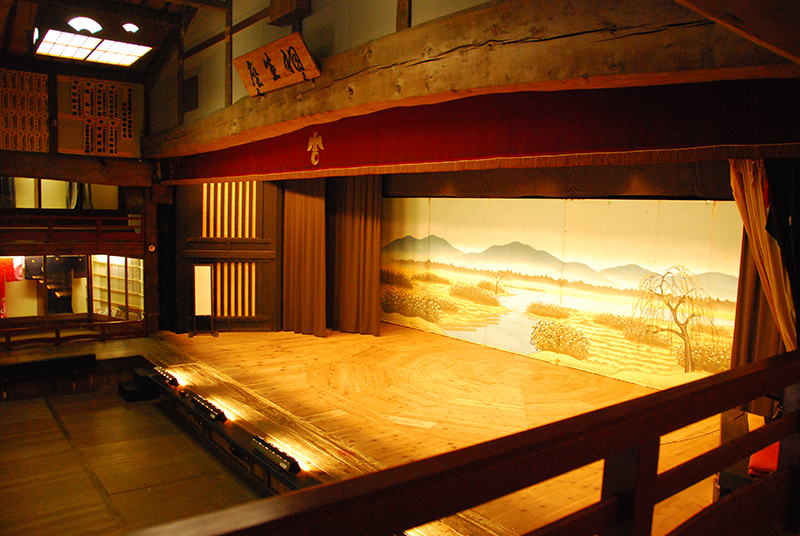



Though many are familiar with kabuki, the traditional art that considered synonymous with Japanese theater, some might be surprised to learn that there is no single kind of kabuki. There is o-kabuki, which is performed by professional actors in the grand theaters of large cities, and ji-kabuki, which is performed by amateur local actors in the countryside. When kabuki began its rapid spread throughout the country as an art form hundreds of years ago, its popularity gave rise to ji-kabuki, which took root quite deeply in Gifu's eastern region of Tono (in cities such as Nakatsugawa and Mizunami).
What sets ji-kabuki apart is its much more down-to-earth atmosphere, true to its roots as an art form supported by the local community. The actors and audience are in constant communication, with the audience supporting the actors by shouting words of encouragement and throwing donations of change on stage when an actor is doing well.
This tradition remains alive and well in Gifu Prefecture, with many ji-kabuki theatres to be found throughout eastern Gifu, such as the Kashimo Meiji-za Theater in Nakatsugawa, the Aioi-za Theater in Mizunami, or the Houou-za in Gero. While there are many places you can see ji-kabuki in Gifu Prefecture, the Aioi-za Theater is special in that they offer a program where (with a reservation) you can become a ji-kabuki actor yourself, applying the makeup, putting on the outfits, and acting out short scenes on the big stage!
For more about upcoming performances and where they will be held, up-to-date information can be found on the official website of ji-kabuki at the link listed below. Reservations for Aioi-za's ji-kabuki experience can be made through the same site.
- Tradition & History
- Spring
- Summer
- Autumn
- Winter
Basic Information
| Address | Various locations throughout Gifu's eastern region of Tono |
|---|---|
| Website | Visit Website |









-1290x683.jpg)








 Twitter
Twitter
 Facebook
Facebook